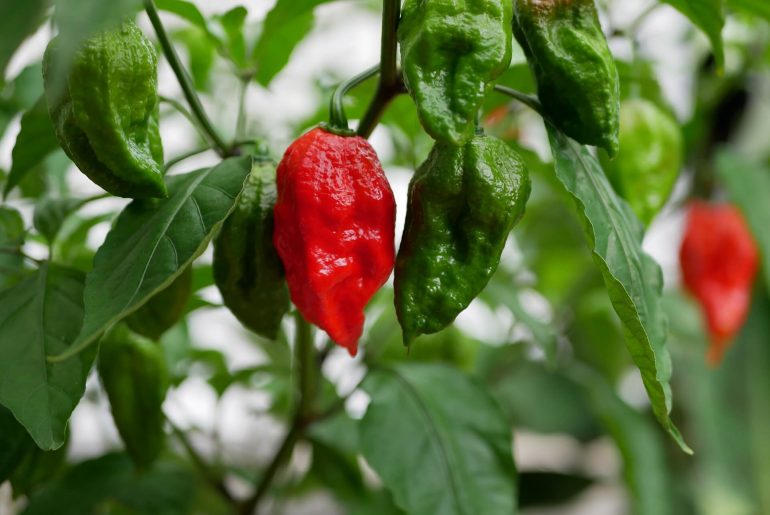The English language never stops expanding, and neither does the dictionary. This past week, the editors at Merriam-Webster’s Dictionary added more than 600 new words, among them, a handful of food-related terms that are sure to come up in your food-loving life.
In order for new words to make the cut, editors must find that a word is in frequent, widespread and meaningful use — all three of these factors must be in play.
Several new words don’t seem new at all. Words you’ve been using for years, like “ghost pepper,” “java,” and “chai latte,” will have you wondering how they’re not already in official status. But that goes to show you that widespread usage is extremely important.
“Umami” is another word — as in, one of the five tastes that humans register, along with salty, sweet, spicy and sour — that was elevated to official word status. The word has been tossed around in food circles for years but is now considered more widely accepted.
Others you will likely recognize like “double-dip” — the action most likely to get you disapproving glares at a party — and “cheesemonger,” that cheese expert at your specialty store you always ask for information around the holidays.
Without further ado, here are the definitions of official new food words you’ll want to know:
Benedict
Benedict, Noun: “eggs Benedict or a variation on eggs Benedict made with one or more different ingredients.”
chai latte
Chai latte, Noun: “a hot drink similar to a caffe latte made with spiced black tea and steamed milk.”
cheesemonger
Cheesemonger, Noun: “a merchant who specializes in cheese.”
cow parsnip
Cow parsnip, Noun: “a tall biennial or perennial herb of the carrot family that has a hollow stem, thick taproot, and large clusters of usually white-flowered umbels.”
double-dip
Double-dip, Verb: “to repeat the action of dipping a chip or other snack into a shared dipping sauce after taking a bite.”
dulce de leche
Dulce de leche, Noun: “sweetened caramelized milk that is traditionally made by reducing a mixture of milk and sugar over heat.”
ghost pepper
Ghost pepper, Noun: “a small, extremely hot chili pepper of southern Asia that is a hybrid between two species.”
go-cup
Go cup, Noun: “A plastic or paper cup used especially for taking a beverage off the premises of a bar, restaurant, etc.”
java
Java, Noun: “arabica coffee beans of plants grown in Java, Indonesia, that produce a usually full-bodied coffee of low to medium acidity.”
mofongo
Mofongo, Noun: “a Puerto Rican dish consisting of friend green plantains mashed with garlic, salt, and olive oil that is traditionally paired with meat or seafood and served with broth.”
steak (non-meat)
Steak, Noun: “a non-meat food formed into a patty and cooked.”
umami
Umami, Noun: “the taste sensation that is produced by several amino acids and nucleotides and has a rich or meaty flavor characteristic of cheese, cooked meat, mushrooms, soy, and ripe tomatoes.”
pinot
Pinot, Noun: “a wine made from pinot grapes.”
Americano
Americano, Noun: “coffee consisting of espresso diluted with hot water.”
Campari
Campari, Trademark: “used for a reddish-colored liqueur used especially as an aperitif.”
Other non-food related words, include “buzzy,” “on-brand,” “screen time,” and “snowflake.”
Also see, Can you eat moldy bread?




